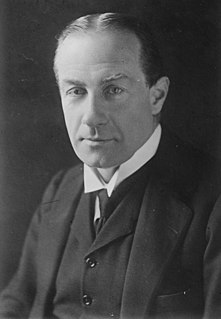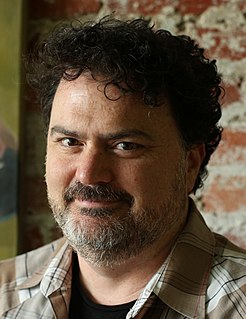A Quote by Bryan Stevenson
If we had done the work that we should have done in the 20th century to combat our history of racial inequality, no one could win national office after demonizing people because they're Mexican or Muslim. We would be in a place where we would find that unacceptable.
Related Quotes
We thought [with Alix MacKenzie], if those are the kinds of pots from every culture that interest us, why would we think that it should be any different in mid-North America 20th century? And we decided then that our work would center around that sort of utilitarian pottery, and that's what I've done ever since.
She would have liked to know how he felt as to a meeting. Perhaps indifferent, if indifference could exist under such circumstances. He must be either indifferent or unwilling. Has he wished ever to see her again, he need not have waited till this time; he would have done what she could not but believe that in his place she should have done long ago, when events had been early giving him the indepencence which alone had been wanting.
I was really interested in 20th century communalism and alternative communities, the boom of communes in the 60s and 70s. That led me back to the 19th century. I was shocked to find what I would describe as far more utopian ideas in the 19th century than in the 20th century. Not only were the ideas so extreme, but surprising people were adopting them.
If you go back and you look at the presidency over the course of history, presidents tend to do what they campaigned on. In the 20th century, presidents between Woodrow Wilson and Jimmy Carter accomplished 73 percent of the things that they said they would do as candidates. Part of that is because once they get into office, their credibility, their ability to do anything depends on doing the things that they said they would.
I was terrified of being on camera. I was worried that whatever I would say, people would assume I'm speaking for every Muslim, every Pakistani, or every Middle Eastern person. That's a lot of pressure. But it also got me excited about what could be done, because I am a representative for people who are underrepresented.
To rest the case for equal treatment of national or racial minorities on the assumption that they do not differ from other men is implicitly to admit that factual inequality would justify unequal treatment, and the proof that some differences do, in fact, exist would not be long in forthcoming. It is of the essence of the demand for equality before the law that people should be treated alike in spite of the fact that they are different.
People never hurt others in moments of personal strength and bravery, when they are feeling good about themselves, when they are strong and confident. If we spent all of our waking moments in that place, then fighting for social justice would be redundant; we would simply have social justice and be done with it, and we could all go swimming, or fishing, or bowling, or dancing, or whatever people do. But it is because we spend so much of our time in that other place, that place of diminished capacity, of flagging energy, or wavering and somewhat flaccid commitment, that we have to be careful.






































